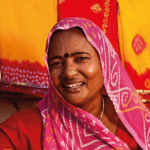Weekly Roundup: PSI for Profit, a Slowing ‘Pulse’ in Africa and Medical Tourism on Steroids
PSI launches for-profit arm
Population Services International (PSI), a U.S.-based nonprofit, announced yesterday that it’s launching a for-profit business in India to complement its global health efforts.
PSI was founded in 1970 and is perhaps best known for its efforts to make contraception available in developing countries. Karl Hofmann, president and CEO, said, “India is changing, demographically and economically. While health care services have been made far more affordable and accessible to people in rural areas in the last 10 years, gaps and challenges in the infrastructure, service delivery, still persist. In its pursuit of equitable economic development, India’s vision of achieving the recently announced Sustainable Development Goals is full of opportunity for entrepreneurs. This makes India the most promising for social enterprises which are innovative, risk averse and are driven by long term commitment to the underserved.” (Here’s some handy background on the move.)
Progress and pitfalls in African crowdfunding
$126.9 million: That was the estimated size of the African crowdfunding market in 2015, according to a new report. It found that, alongside foreign-based platforms like Kiva, there were 57 active crowdfunding platforms based in Africa in 2015, with most being donations-based or equity platforms promoting social causes and business/entrepreneurship, respectively. While it projected the market to grow to $190 million in 2016, the report raised some causes for concern: Africa-based platforms accounted for just $32.3 million of the $126.9 million market – comprising less than 0.1 percent of global crowdfunding activity. And the overwhelming majority of that amount – about $30.8 million – was generated in a single country (South Africa).
Africa’s ‘pulse’ slows
The norm of high-growth across sub-Saharan Africa will slow in 2016, as the region is expected to show just 1.6 percent gains – the lowest growth in more than 20 years, according to the World Bank’s Africa Pulse report. The Wall Street Journal reports:
“Just in April, the World Bank publication had seen growth in sub-Saharan Africa reaching 3.2 percent this year, but the slide in the region’s two biggest economies, Nigeria and South Africa, as well as other oil and commodity exporters, has been steeper than anticipated.”
Those factors are fueling an exodus (paywall) among the investment community as well.
Reporting out of ANDE
Speaking of investors, especially those directing their fiscal fire at helping small and growing businesses, many of them gathered last week for the annual meeting of the Aspen Network of Development Entrepreneurs (ANDE). Each year members are invited to present a new report in two minutes or less. While we don’t have those brief synopses, we do have the reports themselves – each of them worthy of the time of an investor, an SME leader or both. Here are the links, courtesy of ANDE:
- Inter-American Development Bank’s Multilateral Investment Fund: The Practitioner’s Guide: Steps to Corporate Investment, Innovation and Collaboration A Practical Guide to Creating Positive Outcomes
- African Management Initiative: Training Talent, Best Practice in Workplace Learning and Management Development in Africa
- Epven Consulting Team: MOVING THE NEEDLE: Critical Success Factors for Scaling: Innovation in Asset Finance for Small and Growing Agribusinesses
- Acumen: Beyond Dialogue: Building Sustainable and Inclusive Business Models in Partnership with Social Entrepreneurs
- GIZ: Grow, Scale, Impact: How to help inclusive Businesses achieve scale
“I’ve never been an aspiring entrepreneur. I started a business out of desperation.” Ali Mufuruki on his entrepreneurship journey #ANDE2016 pic.twitter.com/1cERb8mxXW
— ANDE (@AspenANDE) September 27, 2016
Medical tourism on steroids
Here’s a fascinating story about unintended, and potentially exciting, consequences of Obamacare.
Seems some U.S. companies, looking to save on health care costs, are offering employees the option of traveling to a Latin American country for medical treatment.
“Travel expenses are covered by the employer, the surgery also, and there is no copayment or deductible like there would be in the United States,” said said Massimo Manzi, executive director of the Council for the International Promotion of Costa Rican Medicine.
It’s fun to imagine specific areas of medical expertise as economic engines in emerging countries, isn’t it?
The impact of interoperability
The GSMA released a report this week examining the impact of account-to-account mobile money interoperability in Tanzania. Since this interoperability is still in its early days in the country, it focuses on “preliminary quantitative metrics alongside perspectives and reflections written by the service providers.” A few key takeaways:
- Basic market conditions in the country enabled the early growth of interoperability;
- Cross-platform interoperability can be a catalyst for further investment in industry collaboration;
- The impact of interoperability is best measured over the long-term.
Click here to read an overview, or get the full report here.
A dose of politics
If you don’t believe most global health issues basically boil down to politics, you should read this story on Devex.
Writers Gabrielle Fitzgerald and Peter Small make the case the global health diplomacy – defined as “finding ways to incentivize governments to achieve health goals for their citizens” – has led to recent successes in vaccines, nutrition and health security.
“Too often we focus on the practical solution at hand, instead of taking a step back to see the bigger picture,” they write. “But when we do look at the broader diplomatic, financial and geopolitical context, then it becomes possible to plot the most effective course to overcome a global health challenge for real, lasting change.”
Impact + liquidity in new ImpactAssets portfolio
ImpactAssets recently announced the launch of a 100 percent impact-focused money market alternative that lets investors “park cash” while benefitting low-income communities. This “Liquid Impact Portfolio” offers “the ease and utility of a money market fund,” providing both social impact and liquidity to ImpactAssets’ donors while they wait to direct this money to grants or longer-term impact investments.
Photo credit: World Bank Photo Collection, via Flickr.
- Categories
- Health Care, Investing, Social Enterprise



